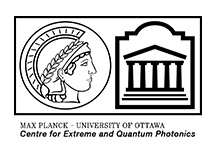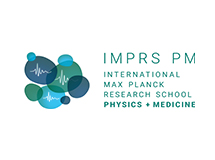
Synthetic mucins: from new chemical routes to engineered cells
Prof Jessica R. Kramer, Asst. Prof. of Biomedical Engineering, University of Utah
Leuchs-Russell Auditorium, A.1.500, Staudtstr. 2
and via Zoom:
https://us02web.zoom.us/j/89443845593?pwd=T2VEcjJic2FUOXFteUdxOEQzRlpLUT09
Abstract:
Mucin glycoproteins are the major component of mucus. Mucus is essential for life and serves as a physical barrier to hydrate, lubricate, and protect tissues. There are 20+ mucin genes with variable expression patterns, splicing, and post-translational glycosylation that result in structures with discrete biochemical functions. Mucins play roles in infection, immunity, inflammation and cancer. Such diversity has challenged study of structure-function relationships. The Kramer lab is developing scalable methods, based on polymerization of amino acid N-carboxyanhydrides, to synthesize glycoproteins that capture the chemical and physical properties of native mucins. We are utilizing these synthetic mucins to engineer the glycocalyx of live cells to shed light on the role of glycans in health and disease. Areas of focus for our lab are progression of epithelial cancers, and infection processes in cystic fibrosis and COVID-19.
Bio:Prof. Jessica Kramer obtained her Honors B.S. in Chemistry from the University of Utah and her Ph.D. in Organic Chemistry from UCLA under the direction of Prof. Tim Deming. She then completed NIH NRSA postdoctoral studies at Stanford and at UC Berkeley as a UC Chancellor’s Postdoctoral Fellow in the lab of Prof. Carolyn Bertozzi. Dr. Kramer also spent several years in industry with Echelon Biosciences and HRL. Dr. Kramer began her independent career at the University of Utah in the Department of Biomedical Engineering in 2017. She is the recipient of the Dream Chemistry Award, NSF CAREER award, and an NSF RAPID. Her lab utilizes a combination of polymer chemistry, protein engineering, and bioconjugations to design new bioinspired materials to probe fundamental questions in glycobiology while addressing human health needs.





